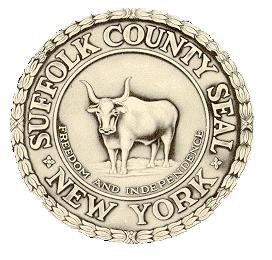Suffolk County, NY - November 20th, 2013 - Suffolk County Commissioner of Health Services James Tomarken reported today that health officials have identified a case of dengue virus in a resident of Suffolk County. A male over 50 years of age from the Township of Babylon was hospitalized in September 2013 with symptoms consistent with dengue virus. He has since fully recovered.
Dengue virus is transmitted to humans by the bite of a mosquito. This case is significant in that it is known to be the first locally acquired case of dengue virus in New York State. While Suffolk County had two confirmed cases of dengue virus in 2012 and three in 2011, those individuals are thought to have acquired the virus while traveling in dengue endemic regions of the world.
It is estimated that there are over 100 million cases of dengue worldwide each year. Southern Florida, southern Texas, and Hawaii are the only areas in the United States where locally acquired dengue fever transmission has routinely occurred. In the Western Hemisphere, the Aedes aegypti mosquito is the most important transmitter or vector of dengue viruses, although the Aedes albopictus, known locally as the Asian Tiger mosquito, can transmit disease.
“The exact route of transmission in this case is unknown,” said Dr. James Tomarken, Suffolk County Commissioner of Health Services. “However, we have determined that this individual acquired dengue virus locally, as he had not traveled outside of the local metropolitan area during the incubation period.”
This individual was likely infected locally with dengue virus when bitten by a mosquito that had previously bitten an infected traveler. Both state and local health officials say that despite this isolated finding of locally acquired dengue virus in New York, they do not expect that dengue virus will become widespread in the region, as the temperate climate in New York does not lend itself to sustained transmission of the virus.
"Given the recent introduction of Aedes albopictus into New York State and the high level of travel in New York to areas of the world endemic for dengue, it is not surprising that a locally acquired case of dengue has been found in the state," said State Health Commissioner, Nirav R. Shah, M.D., M.P.H. "This finding emphasizes the need for physicians to be aware of signs and symptoms of diseases common in tropical countries, but may occasionally present themselves in New York.”
The principal symptoms of dengue fever are high fever, severe headache, severe pain behind the eyes, joint pain, muscle and bone pain, rash, and mild bleeding or bruising. The more severe form of the disease, Dengue Hemorrhagic Fever (DHF), can be fatal, and most commonly occurs when someone is infected with dengue for the second time. There is no immunization for dengue virus, and there is no specific treatment for a dengue infection. Individuals with symptoms are advised to consult their health care providers.
The best preventive measure for mosquito-borne diseases is to reduce mosquito breeding areas around homes, primarily artificial containers that hold water. Proper application of mosquito repellents containing DEET, decreases the risk of being bitten by mosquitoes.
Although New York State is not thought to have mosquito populations endemic with dengue, Suffolk County maintains a long-term community-based plan to reduce mosquito populations and prevent other mosquito-borne diseases that are endemic to the region, including West Nile virus.










